The Serpent Queen Star Samantha Morton on the ‘Mind-Blowing’ Life of Catherine de’Medici
Morton's role in the period drama is the latest in a recent trend of TV series that reimagine narratives about real-world female monarchs.
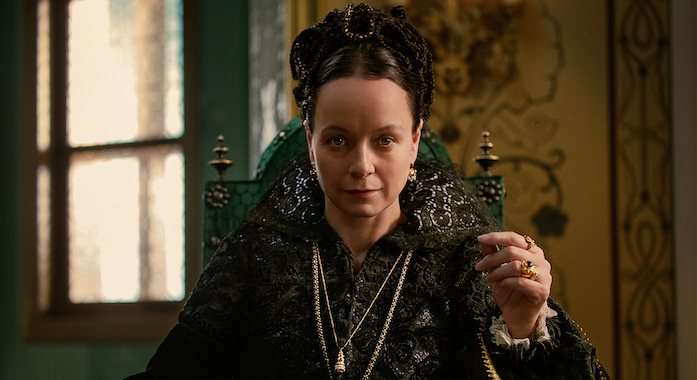
(Photo by Starz)
Media, and television in particular, loves to put a modern lens on female monarchs whose actions (and legacies) have been mocked and scorned in history by the men who write it. Sometimes they’re done with tongue-in-cheek humor (see: Hulu’s Emmy-nominated The Great about Catherine the Great). Sometimes, they get a YA bent like The CW’s Reign. Earlier this summer, Starz aired Becoming Elizabeth, a series about Elizabeth I that shows Henry VIII’s most successful heir not as the stoic adult known through history books and pop culture, but as an innocent pawn and manipulated child.
The latest in this genre is The Serpent Queen, the Starz drama that casts Samantha Morton as Catherine de’Medici. Although her legacy is one of a Machiavellian villain who maybe also dabbled in witchcraft and killed her brother-in-law, the series seeks to show the former Queen of France as a survivalist orphan of an Italian self-made business family who knew her only way out was up — even if that meant, for example, acknowledging her husband’s open and long-term affair with her older cousin, Diane de Poitiers (Ludivine Sagnier). The tagline “Tell me what you would have done differently” appears on the posters next to a taunting Morton dressed all in black.
In an interview with Rotten Tomatoes, Morton talks about getting an audience to understand de’Medici’s side of things as well as the ways women usurp power compared to men.
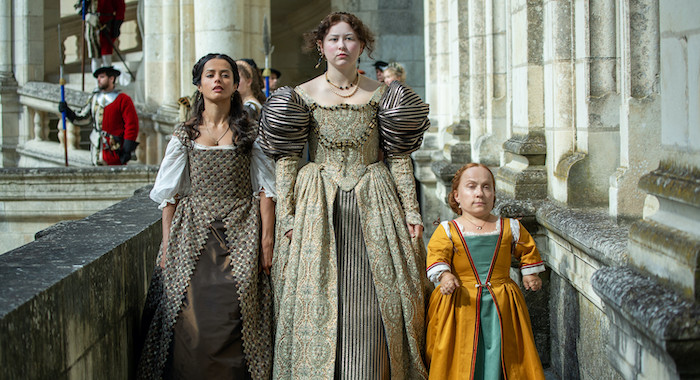
(Photo by Shanna Besson/Starz)
Whitney Friedlander for Rotten Tomatoes: So much of the episodes are told through flashback with you as the adult Catherine narrating how her younger self (who is played by Liv Hill) became this woman. Did that make it harder for you to find the character?
Samantha Morton: Justin Haythe, the creator and showrunner of the series, comes from cinema and he had a very interesting way of how he wanted to tell this story; not just a very traditional, linear way.
And certainly, in regards to “how would you have done it differently,” she is known historically as somebody that was formidable and did some things that are very misinterpreted. We wanted to make sure that we really analyzed the character and that we could give this character the space and the time to bring.
You start from the beginning. And you get to see her childhood and you get to see all these things that happened to her. And then the twist is: OK, if this was happening to you, how would you survive?
Historically, with so many dramas, we know about Napoleon or we know about Henry VIII. We know about all these incredible, historical men even down to Churchill. But, really, a lot of [women’s] stories aren’t talked about unless you’re a history major and you go, “I want to just look at Renaissance France.” It’s a very specific era. Her story is absolutely mind-blowing and fascinating. And I just couldn’t believe I didn’t know about it.
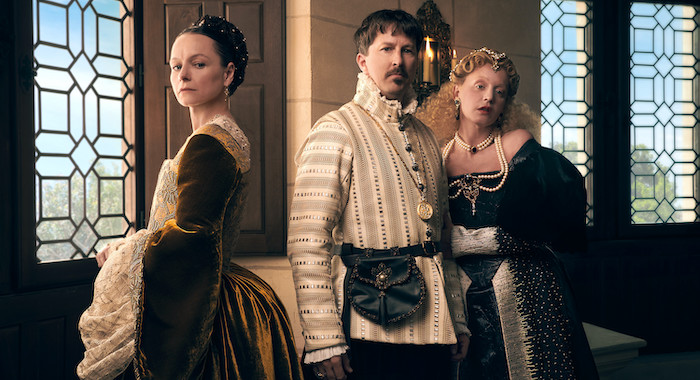
(Photo by Jason Bell/Starz)
There are so many projects now and recently that re-examine female rulers. Should we have been doing this all along? And should it just be females in power?
Samantha Morton: The thing that’s different about Catherine is that she wasn’t royalty to start. She was a shopkeeper’s daughter. She was of the merchant class. The racism she suffered as just being an Italian going to France [and then, marrying at 14 and] being the victim of child trafficking … the children were just treated horrifically back then whether you were of nobility class or you were poor.
I think each of these shows are done quite differently. They have different people behind those shows. So whilst the poster might look a certain way, and there’s the Starz logo, I think they’re all quite different in the writers or the directors or the music or what they’re trying to say.
But, I think that, historically, we have a real shortage in cinema of female stories. We have the superheroes and we, occasionally, have the token female superheroes. But if we look at society, we have 50-percent men and women. Why can’t there be any equality in regards to what’s put on the screen, whether that’s streaming, or whether that’s at the cinema? And, certainly when you get to a certain age, those roles; people just aren’t writing them or they think that people aren’t going to want to pay to see them, or they’re not going to watch them or subscribe to that channel because there’s a misconception of who the viewers are.
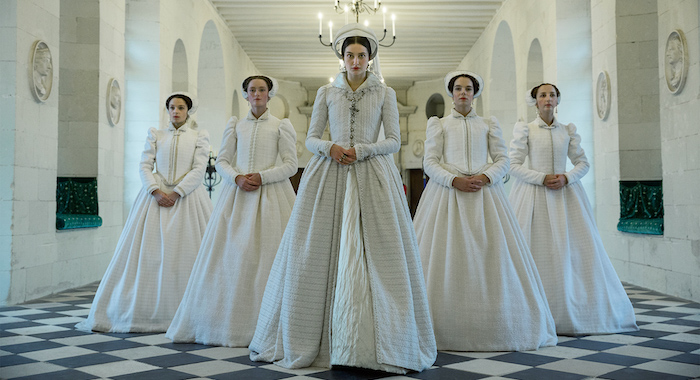
(Photo by Starz)
Rotten Tomatoes: You played Mary Stuart in Elizabeth: The Golden Age. Mary is also depicted in this show by Antonia Clarke. She’s also an antagonist. What did you think of the similarities between their stories?
Samantha Morton: I learned a huge amount. My interpretation of Mary was that I played her very Catholic and, obviously, Scottish … And because she was brought up in France, she spoke fluent French; however, she also took with her, when she went to France, her entire court … so I thought the interpretation that Antonia did was absolutely brilliant and fascinating, just very different. And that was just in being so brave in wanting to tell the story slightly differently, to contemporize it.
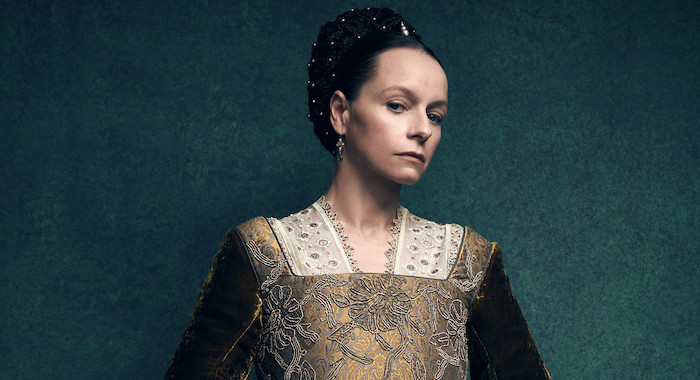
(Photo by Jason Bell/Starz)
Catherine had 10 children and we see her giving birth to the last one. Things, unfortunately, do not go well. Because of HBO’s House of the Dragon and a violent C-section scene there, there have been a lot of questions regarding accuracy and depictions of birthing scenes. What kind of research went into the scene in your show to make sure it was historically accurate?
Samantha Morton: Well, I’ve had three kids … and I’ve had many babies on screen. Male cinematographers, male directors, male editors, male composers — they’re often from the male eye. With this, it’s about what does it feel like for Catherine to have this baby. We’re not trying to be brutal with it, but just show the reality while also not scare people away.





